Spoken or unspoken, competition has always existed between natural vs relaxed hair.
I’ve often heard people say keeping natural hair is going through unnecessary trouble while relaxing your hair makes things easier.
Again, some say women who keep virgin hair are staying true to themselves while those with permed hair are trying to be something they are not.
These are ideas that have, well, prevailed in our community.
For now, though, let’s leave these infamous ideas.
Let’s take a look at this ‘debate’ by considering the pros and cons that come with keeping natural and relaxed hair.
After all, what better way could there be to compare natural vs relaxed hair without bias?
To get started, here is a clear definition of natural and relaxed hair.
- The Difference Between Natural vs Relaxed Hair (Permed Hair)
- Natural vs Relaxed Hair Pros and Cons
- Does Natural or Relaxed Hair Grow Faster?
- Frequently Asked Questions about Natural vs Relaxed Hair
- Does Relaxing my Hair Make it Unhealthy?
- Can Split Ends Occur in Natural Hair?
- How can I Care for my Relaxed Hair?
- Does Dirt Increase the Growth of my Natural Hair?
- How can I Stop my Relaxed Hair from Breaking?
- How Often Should I Wash my Natural Hair?
- How Long Should I Wait Before Retouching my Hair?
- How Long Does it Take to Transition from Relaxed to Natural Hair?
- Does African Threading (Kiko with rubber) make my Natural Hair Longer?
- Is Natural Hair Stronger than Relaxed Hair? (Natural vs relaxed Hair Debate)
- I Just Started Growing my Hair, How Long Should I Wait Before Applying a Relaxer?
- Final Words
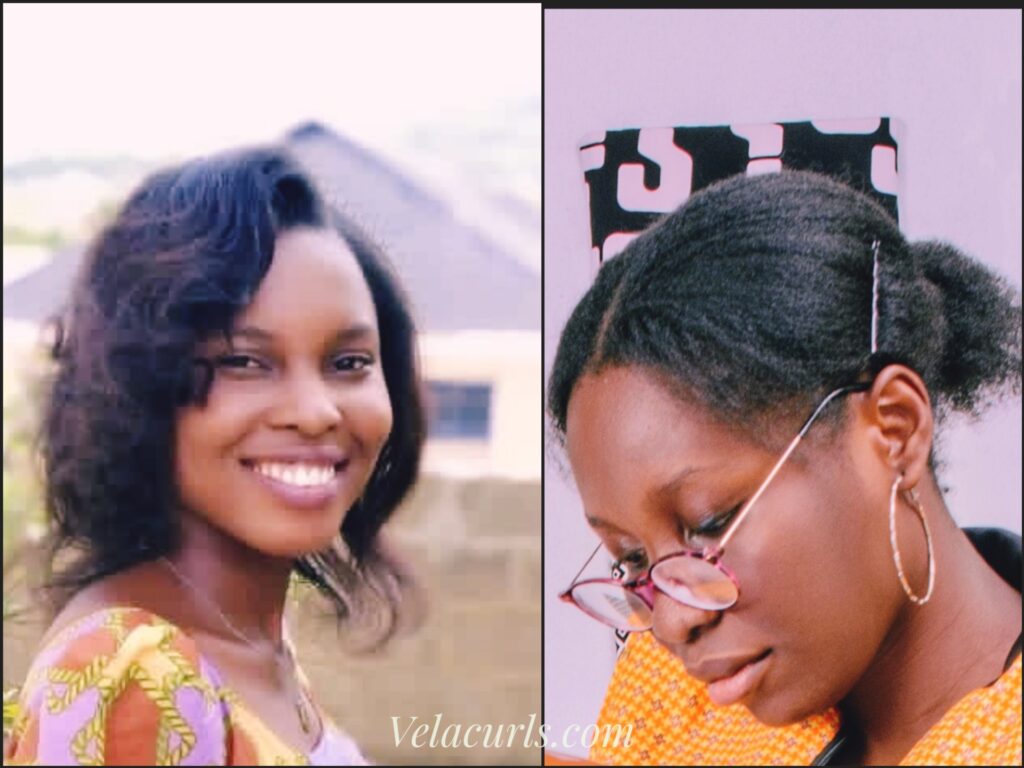
The Difference Between Natural vs Relaxed Hair (Permed Hair)
What is Relaxed Hair?
Relaxed hair is the hair on which chemical has been applied to alter its texture, making it straight and easier to manage.
These chemicals are called hair relaxers, and they work by breaking down the disulfide bonds in hair, in other words, relaxing your hair strands.
They penetrate the hair cuticle and shaft and alter the original curl pattern.
Byrdie.com describes relaxed hair as hair that undergoes controlled damage to straighten it.
For the love of thickness and volume, some do not straighten their hair totally with relaxers.
This type of hair is called texlaxed or blown hair; the hair on which relaxer has been applied but not so much that it becomes completely straight.
It still retains some of its texture and volume.
Natural hair
On the other hand, natural hair refers to hair that is grown without the use of chemicals to modify its texture or volume.
There’s a bit of controversy as to whether chemically colored hair is still natural.
Many feel that as long as the hair’s texture has not been altered, and the hair’s natural pattern is still maintained, it is natural.
But since hair dyes also contain chemicals, some feel that staying natural means No Hair Dyes!
Well, each one to her opinion.
One thing we all agree on is, natural hair has to be relaxer-free.
As a Nigerian, you probably have no issues telling the difference between natural and relaxed hair.
Most times, we can tell merely by looking.
Natural vs Relaxed Hair Pros and Cons
Our next stop to compare natural vs relaxed hair is to consider their pros and cons.
Here are the benefits and disadvantages of natural and relaxed hair.
Benefits Of Relaxed Hair

1. Ease
The most apparent advantage of relaxing hair is that it is easier to manage.
It’s a significant boost for most people who relax their hair.
When not styled, you do not have to spend much time on it daily.
You could comb and let the hair fall, easily pack it up or create a parting using just your hands.
This ease that comes with relaxed hair is something many people would trade for nothing.
2. Less Management Stress
Relaxed hair also requires less stress to manage.
Aside from the retouching, which happens only every 3-4 months, you do not need lots of hair processing to keep relaxed hair in good shape.
It does not knot or tangle easily since relaxers have straightened the natural curl pattern.
This reduces its risk of breakage due to improper detangling.
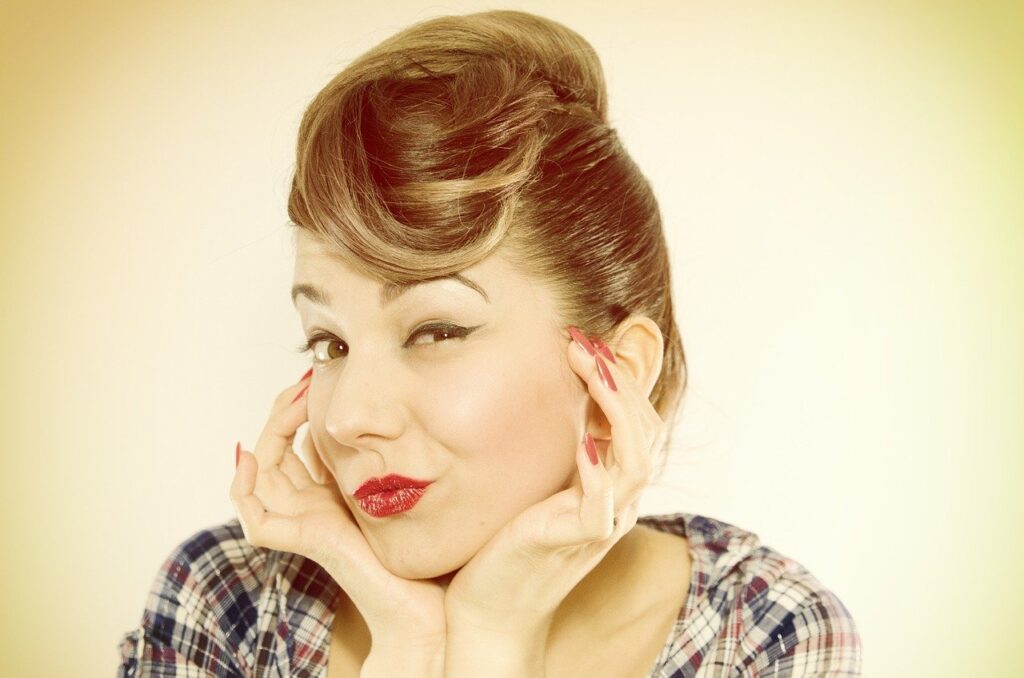
3. Styling
When it comes to relaxed hair, styling is a breeze.
You can make almost any hairstyle without having to manipulate your hair.
Most styles also come out neater and nicer on relaxed hair without the use of expensive styling products.
Let’s not even go into how faster it is to style than natural hair.
Or how you get to deal with less pain during the styling process.
Relaxed hair makes styling so much easier!
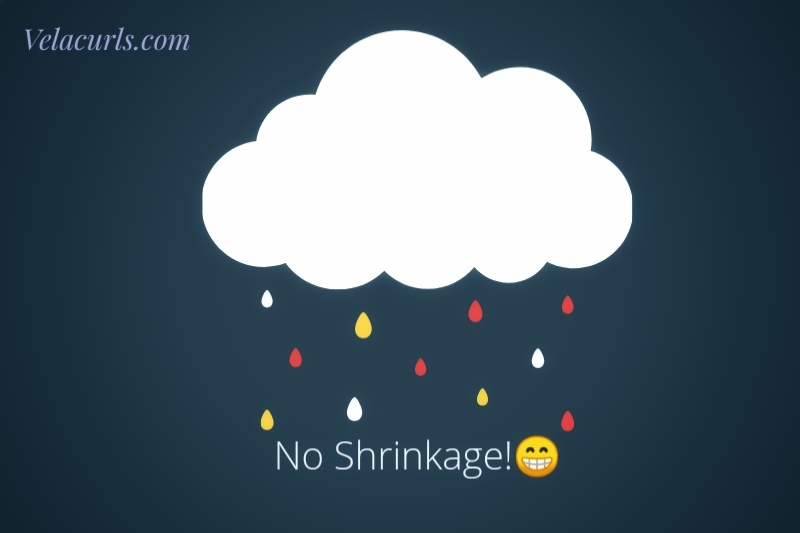
4. Weather Friendly
With relaxed hair, you get to worry less about whether it is raining or cold or dry.
Of course, one still has to protect the hair from harsh weather, but bad weather affects natural hair more than relaxed hair.
For example, there’s no risk of hair shrinkage after being inevitably beaten by the rain.
And during very hot weather, when we all long for fresh air in every possible way, it is easier to blow air to the hair because of its low volume and thickness.
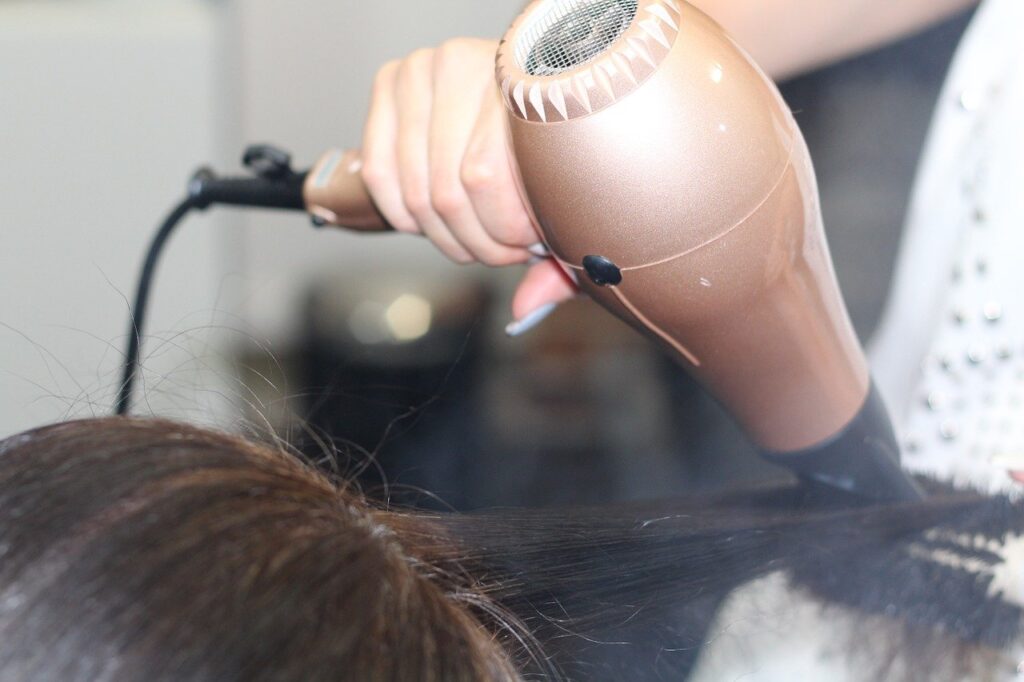
5. Less Prone to Heat Damage
Most heat styling tools aim to make the hair straighter or lighter.
Well, that’s something the relaxer already did!
Relaxed hair, therefore, requires less use of heat styling products when styling.
It even takes less time to dry, minimizing the use of hair dryers.
The use of heat styling tools which can cause damage to the hair is therefore reduced, and in that sense, relaxed hair is less prone to heat damage.
Relaxed Hair Cons
1. Chemical Irritation
Relaxers are chemicals that can irritate the scalp and other parts of the skin that may contact it.
It may cause the scalp to ‘burn’ when left for long, and when this heals, it results in flaking of the scalp.
These are not favorable hair conditions.
It can make the hair journey a frustrating one.
2. Structurally Weak
Hair relaxers break down disulfide bonds in hair in an attempt to relax it.
This alters the hair structure, and over time leaves it weak and looking lifeless (okay, the hair itself is lifeless, but I’m sure you get what I mean)
3. Costly
Relaxing your hair isn’t a one-time thing.
You have to keep doing it as your hair grows, in most cases every 3-4 months.
This implies that you spend money on relaxers at least thrice in a year (twice in very few cases).
Some hair types require a specific type of relaxers that are above the average price of relaxers.
Getting a professional relaxer application also comes with spending a certain amount of money.
These, coupled with getting other hair treatments done, can be, well, costly.
4. Prone to Damage
Over time, relaxers may cause hair thinning and weakening.
With the natural hair structure altered by relaxers, relaxed hair is easily affected by other chemicals.
For example, hair dyes’ adverse effects have been found more in relaxed hair than natural hair.
Note: A tip to avoid some disadvantages of relaxed hair is to not entirely straighten hair when relaxing.
This helps the hair to retain some of its elasticity, reducing its risk of damage.
Natural Hair Pros
For keeping your hair natural, here are the advantages you get:
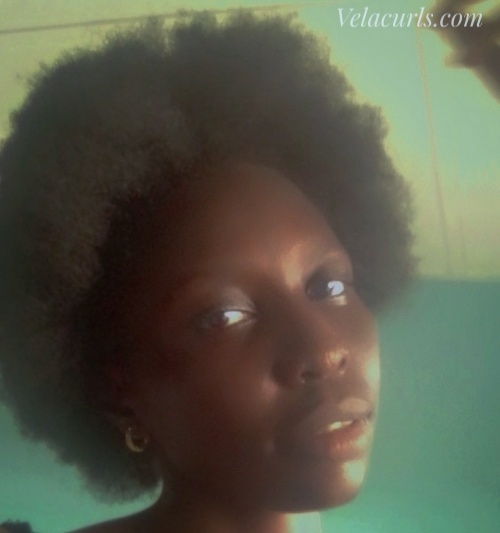
1. Naturalness
Here’s the most obvious advantage of keeping natural hair; naturalness.
That feeling that comes with knowing that you are keeping your hair just the way it is, especially when you are doing a great job at rocking it, is something most naturalistas would trade for nothing.
Save that sweet feeling; staying natural means that you do not have to worry about chemicals ruining your hair, especially when your staying natural means ‘no hair dyes’.
Also, almost every natural hair is unique in look and texture.
2. Flexibility
With natural hair, you have many options to rock your hair without extensions ranging from spring twists to weaves to the easy ‘wash and go’ afro look.
You can even get the straight hair look by using hair straighteners (please do not often use though)
While relaxed hair maintains its straight, relaxed look, natural hair is versatile and can be manipulated to give different looks, including the relaxed hair look.
That’s a goal point for natural hair when it comes to natural vs relaxed hair!
3. Elasticity
Keeping your hair natural retains its ability to stretch and bend without breaking.
A high-level elasticity, in turn, helps prevent your hair from breakage.
Natural hair is, therefore, less prone to damage than relaxed hair.
4. Stronger Structure
Natural hair is structurally stronger than relaxed hair.
And why wouldn’t it? The bonds in hair fibers are left intact, unaltered by hair relaxers.
This makes it less prone to damage and hair brittleness.
5. Volume and Bounce
Natural hair is generally thick and full, giving it a beautiful, unique look that inspires confidence!
Natural Hair Cons
1. Consumes Time
Whether you are combing, styling, or applying hair treatments, natural hair consumes more of your time, mostly because of its thick volume and texture.
Most times, this means spending a longer time at the salon, spending a long time in front of the mirror struggling to style your hair, or having a ‘wash day’ dedicated only to caring for your natural hair.

2. Shrinkage
Natural hair shrinks quickly, and when it is left in this state for long, it begins to knot and tangle.
When detangling is not carried out properly, it can lead to unnecessary hair loss and breakage.
Yea, that’s another downside to keeping natural hair that will be discussed next.
3. Hair Breakage
Natural hair is generally prone to dryness because the scalp’s oils cannot get to the hair shaft easily due to the natural curl pattern.
Without proper care and regular oiling, natural hair tends to break easily, unlike relaxed hair.
It also tends to knot and tangle on its own due to its natural structure, leading to breakage.
4. Costly
Hair products designed specifically for natural hair are most times a bit on the high side of cash.
You might have also noticed that hairstylists tend to charge higher for natural hair styling due to the extra stress involved.
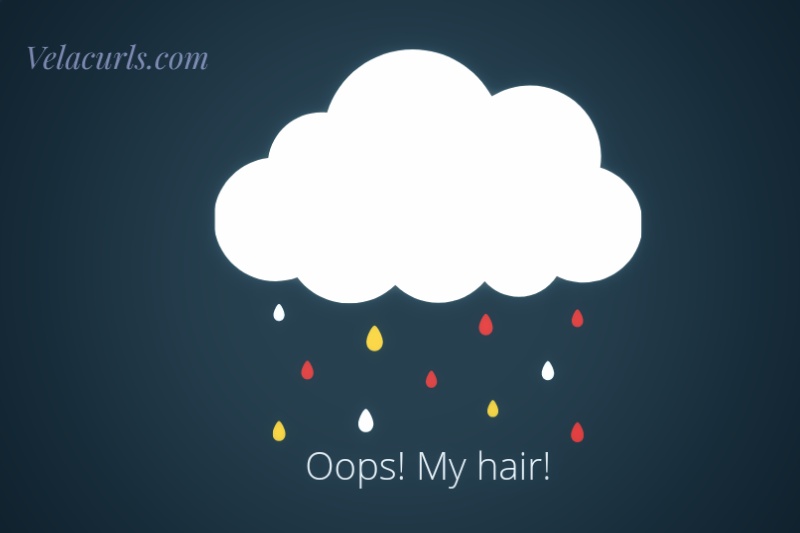
5. Not Weather Friendly
Natural hair is easily affected by bad weather.
One rainy day inevitably spent outdoors can cause the hair to shrink badly.
Also, dry weather makes the hair dehydrated and increases its tendency to break.
6. Prone to Heat Damage
Due to its curly pattern, styling natural hair sometimes requires heat styling tools to straighten it first and improve the style’s outlook.
Frequent use of such tools leads to heat damage on the hair.
Note: A tip to avoid, or at least minimize these disadvantages is to take proper care of natural hair. Read here for great tips!
Does Natural or Relaxed Hair Grow Faster?
Apart from the pros and cons of natural vs relaxed hair, many people also consider which one would grow faster when deciding how to wear their hair.
After all, who doesn’t want long hair as soon as possible? (Okay, apart from my beautiful short hair lovers)
Hence, the question ‘does your hair grow faster natural or relaxed?’
The simple answer is NO.
Hair growth happens within scalp cells, and so it has nothing at all to do with whether your hair strands are relaxed or not.
Your hair grows at the same rate, whether it is natural or relaxed.
Misconceptions occur, however, due to the following reasons:
- Natural hair shrinks quickly, so it may not be easy to ascertain its actual length.
- Hair undergrowth is easily identified in relaxed hair because they look different from the relaxed hair strands. In natural hair, newly grown hair looks the same as already grown hair, so one might not readily see the growth.
- Hair loss may occur in relaxed hair due to frequent contact with chemical relaxers, mainly when not correctly applied. This may make it look shorter when compared to natural hair.
Frequently Asked Questions about Natural vs Relaxed Hair
Since we are considering relaxed vs natural hair, it’d be nice to see answers to some frequently asked questions about both hair forms.
You’ve probably asked yourself one or two of the following questions.
Or you’ve heard people say some things about natural or relaxed hair and you were not sure if they were true.
Whatever the case, here are answers to some of the frequently asked questions about natural vs relaxed hair.
Does Relaxing my Hair Make it Unhealthy?
Short answer: No.
You will not be making your hair unhealthy by applying a relaxer. True, relaxers alter the hair’s texture, but not the health.
Your hair’s health does not depend on whether it is natural or not. Rather, it depends on how well you are caring for it.
So if you have good reason to relax your hair and the only thing holding you back is the fear of it becoming unhealthy, grab that tub or sachet now and get your hair done, sis.
Can Split Ends Occur in Natural Hair?
Yes, of course.
Split ends occur not only in relaxed hair but also in most natural hair.
Your chances of getting split ends are increased if you subject your hair to frequent manipulation and use heat styling tools often.
In case you were wondering, correct trimming is the remedy for split ends.
There’s more it though, you can read all you need to know about split ends here.
How can I Care for my Relaxed Hair?
Your relaxed hair care begins with getting your relaxers applied by a professional.
Like any other hair type, keeping your hair moisturized is also crucial to care for it. Regular oiling and conditioning will go a long way.
You also want to avoid applying relaxers too frequently and regular use of heat styling tools.
That is not all though, read all you need to know about relaxed hair care here.
Does Dirt Increase the Growth of my Natural Hair?
I don’t know if you find that as funny as I do but no, your hair being dirty does not help it grow faster.
What you’ll get with dirty hair is odor, oil and product buildup, growth of bacteria, and scalp irritation.
In contrast, a clean scalp contributes to hair growth.
Keeping your hair clean is also one of these incredible personal hygiene tips.
How can I Stop my Relaxed Hair from Breaking?
First, identify why your hair is breaking.
In most cases, it is due to dryness.
The process of relaxing the hair causes the loss of natural oils present in the hair.
Therefore, it is necessary to replace lost oils and moisture.
If you are not doing that, that could be why your hair is breaking.
So, to stop the breakage, provide your hair with proper oil and moisture.
You can do this by using water-based leave-in conditioners and deep conditioners.
Hair oils such as argan oil, coconut oil, lavender oil, and castor oil would also be helpful.
How Often Should I Wash my Natural Hair?
Ideally, your natural hair should be washed only once in two weeks.
This will keep it clean while avoiding over-washing.
Keep in mind that washing your hair is different from providing it with water.
You can always provide your hair with water without washing by co-washing or using a water spray.
How Long Should I Wait Before Retouching my Hair?
This depends on how fast you get undergrowth.
That is not to say that you should retouch your hair the moment you notice new growth; relaxing your hair too often is not a good thing.
Ideally, you should wait three to four months before retouching your hair.
How Long Does it Take to Transition from Relaxed to Natural Hair?
Well, there are majorly two ways to transition your hair.
Either you go for the big chop (cut out all relaxed parts of your hair at once) or you let the relaxed parts grow out gradually.
The length of your transitioning period will depend on what method you choose and especially the rate of your hair growth.
If you are growing out the hair, it usually takes about a year to completely transition.
In most cases, you start seeing changes after about four months.
Does African Threading (Kiko with rubber) make my Natural Hair Longer?
Yes, in a way.
African threading will help to retain your hair length, encourage hair growth, and prevent breakage.
These contribute to your hair growing long.
African threading is also a perfect way to stretch your hair while avoiding heat styling tools and their disadvantages.
Is Natural Hair Stronger than Relaxed Hair? (Natural vs relaxed Hair Debate)
Yes.
A healthy natural hair is stronger in structure than a healthy relaxed hair.
In most cases, it is also healthier.
The absence of chemical damage (which is present in relaxed hair) makes this possible.
This structural, natural strength is one major advantage of natural hair over relaxed hair.
I Just Started Growing my Hair, How Long Should I Wait Before Applying a Relaxer?
This is a concern for many kids who are just out of secondary school and are about to start their hair journey.
You see, I applied relaxer to my hair after about three months of growing it (almost immediately after secondary school) and I got a lot of ‘omg you’ve ruined your hair!’, ‘why did you relax your hair, now it won’t grow!’ comments.
I didn’t know much about hair then so yeah, I was scared.
I had relaxed it that early because I wasn’t planning to keep natural hair and my hair though short, was hard for me to manage.
Well, guess what?!
My hair did grow. Healthily and beautifully.
Relaxing it after three months did no damage.
The point?
The idea that relaxing your hair early will destroy your hair is not true, especially if you have a strong hair texture.
If your hair is easy for you to manage though, you should chill for a while to understand your hair while rocking its naturalness. Say, about eight months to a year.
And who knows? You might just fall in love with natural hair and decide not to get a relaxer.
Final Words
If you were wondering before reading this article, ‘Should I relax my hair or go natural?’ I’m sorry to say; I do not know.
But what I know are the incredible benefits and few downsides to each – precisely what I have highlighted above.
I do hope these help you make the right decision.
And if you read this article to find the superior one between relaxed and natural hair, I hope you got the point; they are both excellent in their ways!
Whichever way you choose to wear your hair, do it with confidence!
But more importantly, care for it the right way.
You should check out our article on How to Care for Natural Hair and Relaxed Hair Care for great tips!
If it’s not on Velacurls, it’s no where!
Tomvad! Thanks!
Great Article!
Keep the fire burning!
Thank you! Thanks for visiting❤
Omo, ignorance is truly costly. I actually had a lot of myths about relaxed hair, in my head, before reading this article. Thanks for opening my eyes, Velacurls It’s a really great piece!
Lol, we learn everyday, don’t we? I’m glad it helped! Thanks for always stopping by.
Nice Content!
I’ll definitely keep this link and send to my babe when I have one in the future
Lol..please do, Zheek! Thank you.
What a useful tips!
Thanks for the post
Thank YOU for reading. Hope you stop by some other time.
I think I prefer a natural hair,lol
Glad you could make a choice with this, lol
This article is really nice.
Well done.
Thank you. I’m glad you liked it.
You’re adding value with your content.
Great information shared!
Keep the fire burning
Thank you for this comment. I’ll keep working to put value out here!